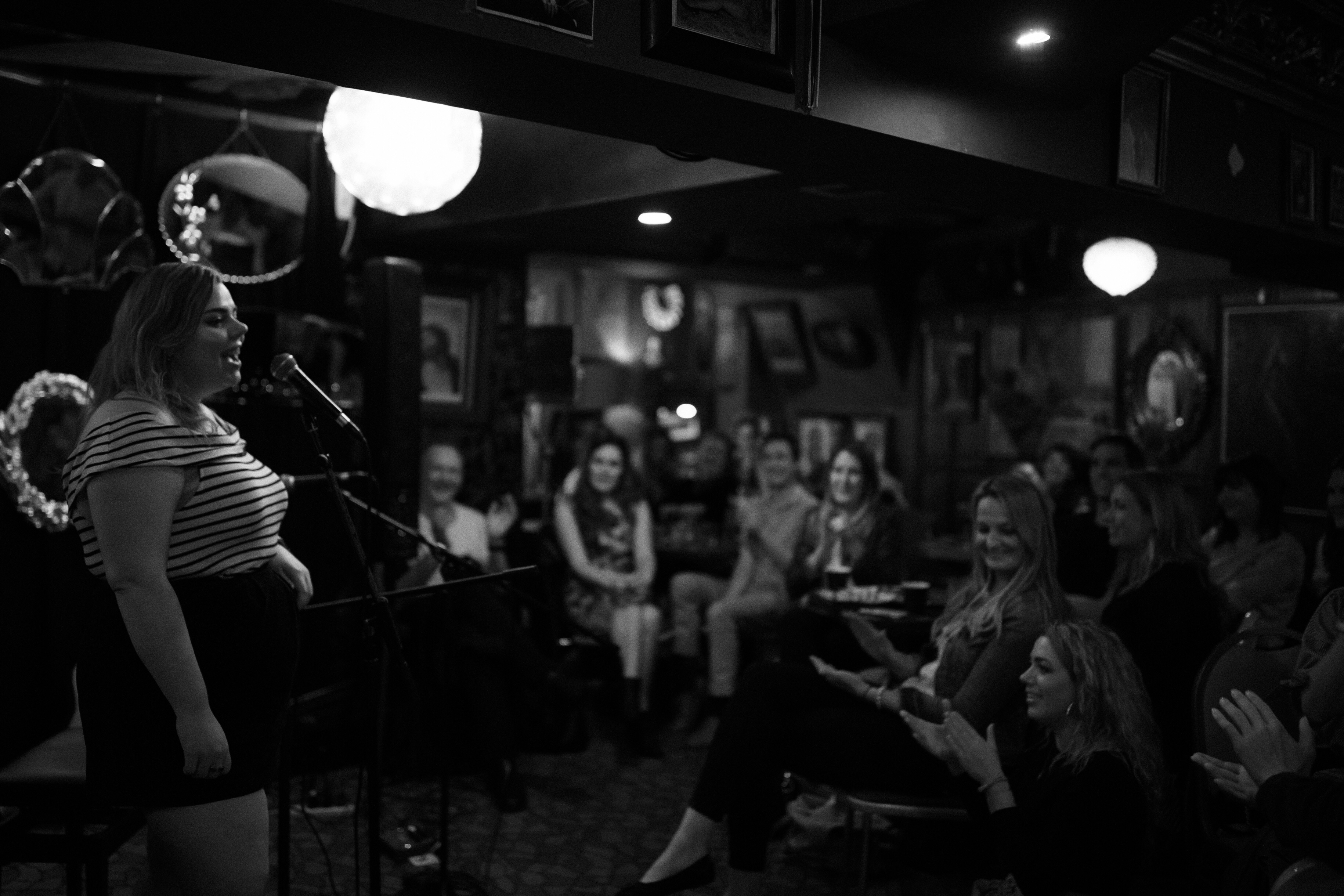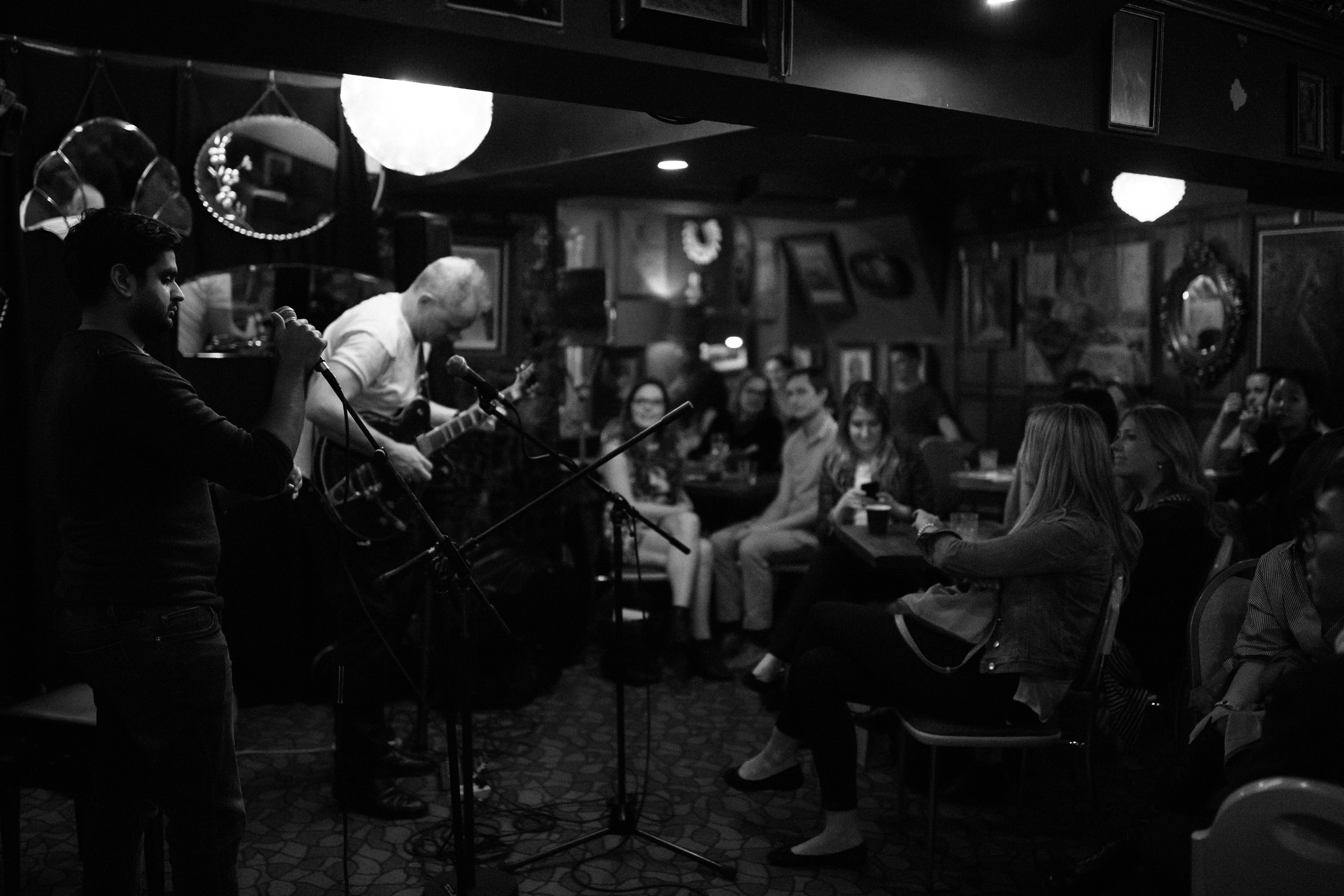Music, Success and Money (and the infants who love Led Zeppelin)
It’s hard to believe, but there really are people in the world who don’t like music.
Actually, it’s probably fair to say that it’s not so much that they don’t like music, but that they find it boring and distracting because they have a psychological condition called musical anhedonia.
People like this mostly lead normal happy lives, it’s just that when other people find out they don’t like music – and tell them there’s something wrong with them – that’s when they get unhappy and there’s no music to cheer them up.
Sadly, and of a much greater concern, are people who absolutely hate music, and have it banned.
The Taliban, a war–traumatized gang of nut–cutlets who are still fighting it out in Afghanistan, banned music and jailedmusicians they caught them playing an instrument, after they captured Kabul, in 1994.
This hatred of music happens even in times of peace. Powerful people in the United States and officials who run the BBC in the UK, all through the 20th Century, banned music by Billie Holiday, Peter Paul and Mary (Puff the Magic Dragon), the Sex Pistols and Shirley Bassey.
In Russia, too, and much more recently, the members of a bandcalled Pussy Riot were jailed because of a gig they held in a cathedral in Moscow.
There’s really no question that music is an elusive and powerful art form, whether it’s Gregorian Chant, blues, jazz, Shoegaze, Hip Hop, Punk, Folk, Death Metal, Nu Metal, Stadium Rock, Dark Folk, Indie Pop, ElectroFunk and SynthPop, or your annoying cousin playing air guitar with his tennis racket.
You can see all the fear and loathing people have for music in this YouTube clip of the very Reverend Jimmy Snow, in the US of the 1950s, explaining how he recognized rock music as something that creates ‘evil feelings when you sing it’ because, ‘of the beat’.

You might also want to check out these Youtube videos of infants reacting to Led Zeppelin to see how right he actually was.
Of course, when something is this powerful, it feeds on money. Take the new behemoths of music distribution Apple, Google and Spotify, the last of which is owned in part by the fourbiggest record labels on the planet: Sony, Universal and the other two.
Spotify loads up around 20, 000 songs a day for 71 Million subscribers that contribute to an annual revenue of $4 Billion. A small part of a global pie worth $15 Billion. Artists make a variety of returns out of exposure through these systems and an estimated $.00437 on Spotify per stream, on YouTube, $0.0007, Apple Music, $0.008 and Tidal, $0.013.
Eating fried lentils and rice five nights a week, and taking crap from a psychopathic boss in a dead-end job, musicians often get disheartened when they look at how overwhelmingly impossible success financially seems. Everybody knows there has always been a tension between creative activities and money, and its’ a long standing and wonderfully complicated idea that does nothing to pay the rent.
If making a living from music is important for you, and chasing that living doesn’t extinguish your love for what the philosopher,Soren Kierkegaard, described as being ‘like time,’ ‘measured,but immeasurable,’ ‘composed, but indivisible,’ right now is avery exciting time because the production and distribution of music has never been a straight-out system of one–to–one between artist and audience.
Back in the 1970s, musicians couldn’t afford access to studios and promotion so they sold the rights to their work in exchange for help from record companies. The artist formerly known as Prince was a talented and naïve 19-year-old when he signed with Warner Bros.
Record company management explain, in this video from The Economist magazine that they use the money from the copyright they hold on those artists work to foster new musical talent, which they presumably keep a look out for, driving through Monaco on holidays in an affordable Audi TT.
It’s not for nothing that, back in the nineties, the artist formally known as Prince went around with the word ‘slave’ written on his face to champion the rights of artists to own their own work.
The revolution that has reorganized the music system has lowered the cost of production and distribution of music and the cost of music. To understand this, take the average price of a house, in Sydney, in 1975, at $28,000, and the average price of an album of music at just under $10.
Right now, house prices in Sydney are 36 times what they were in 1975, at an average of $1 million, while an album of songs has only doubled to around $17.00 on iTunes.
Bands make their money on live performances and merch, nowadays, but record labels are out to take that too, if they can get you to sign.
But the news is not all bad.
In fact, it’s pretty good. Former Executive Editor at Wired Magazine, Kevin Kelly, put out the idea that a musician or a band can live well on one thousand true fans, and it’s finally starting to catch on, as musicians realize that they can promote, record and run their own careers with technology like Digital Audio Workstations and websites and social media.
It’s a revolution those who signed their lives away before us would never have imagined.
The fact is that there are another two billion or so people who will be online world wide in the next two years, and some of them – a lot of them – are going to like music. Maybe your music, once you have recorded it and sent it out there.
The idea is to make the music you like and find out who your audience is. You can mess around with the out of phase aspects of Stratocaster or the effect compression has on a Nashville Tuned Martin, you can fine tune the attack of an 808 in your retro Trip Hop piece and then EQ your vocals with a Neve 1073plugin and send it all out through your own marketing and management team.
Best of all, write some poetry into your lyrics in language that, to quote Flaubert, is like ‘a cracked kettle on which we beat out tunes for bears to dance to, while all the time we long to move the stars to pity.’
And it’s yours, and it feels good if you make some kind of an impact musically and culturally, and get a thousand true fans. Some of them might be the infants who love Led Zeppelin.
James Gallaway

https://www.theguardian.com/world/2001/oct/13/afghanistan.books
https://ncac.org/news/blog/turn-that-down-40-banned-and-censored-songs
https://www.bbc.co.uk/programmes/articles/5R152hTbVPQdYjn29q5jt4/16-songs-banned-by-the-bbc
https://www.bbc.com/news/world-europe-25490161
https://www.youtube.com/watch?v=9gQV15DPvyE
https://www.youtube.com/watch?v=2Lboxh5nXSU
https://www.youtube.com/watch?v=IdPwFx3j8JY
https://www.youtube.com/watch?v=sRWVkuvW1QA
https://www.youtube.com/watch?v=aqz3DaisBz8
https://www.nbcnews.com/news/nbcblk/prince-fought-big-labels-ownership-artistic-control-n560161
https://www.bbc.co.uk/programmes/articles/56nG2R2ps7YJCDyG76Wjbvf/more-than-merch-why-band-t-shirts-are-so-important
https://www.edge.org/conversation/kevin_kelly-the-technium
https://kk.org/thetechnium/1000-true-fans/